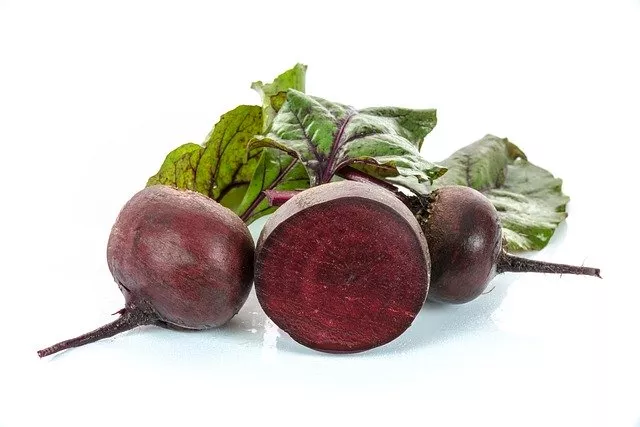What do you know about Beet?

Cultivation of Beet was started by the Romans. Beet was highly acclaimed in the 19th century when it was discovered that Beets can produce sugar. Beets have a good place in various recipes around the world. In Sri Lanka, we eat beet as a curry. But in Eastern, Western and Central European countries, beets are used as a soup, salad, dessert, and as a nutritional drink by many athletes. Beets belong to the same family of Spinach, the leaves and the root of the Beet are also eaten. The root has a sweet flavor but the leaves are not. So, the raw root can be eaten too.
This vegetable is full of various nutrients. It is rich in calcium, iron, manganese, potassium, vitamin A and vitamin C. It is also a good source of folic acid, which is important for the brain development of babies and pregnant women.
The bright color of beets is derived from the pigment known as Betalaines. These Betalains give most of the health benefits of Beets. Research has shown that fibers in beets can increase white blood cells. Beets are one of the most common vegetables with antioxidants. Glutamine, an amino acid, is highly contained in Beets.
There are researches that prove that drinking Beetroot juice lowers blood pressure. According to researchers, people who drank eight ounces of beet juice daily had reduced blood pressure. It is said that the nitrate compounds contained in beets are converted into nitric acid in the blood, which causes the blood vessels to expand and relax. A small study conducted in 2012 by using a group of experienced cyclists, found that drinking beet juice increases blood plasma nitrate, which in turn boosts the body's strength. A study in 2015 found that after two hours of drinking beet juice, the physical strength of people with weak heart health is increased by 13%. The reason was that the beets contained nitrate, according to the researchers.
The pigment that gives it colour to Beets is a good antioxidant and it fights against free radicals and cancer cells.
You may have heard of fatty liver. Eating foods with little nutrients, eating foods high in fats, sedentary lifestyle, excessive alcohol consumption, etc. are the main causes of fatty liver. Betine, a compound found in Beets, reduces or prevents the accumulation of fat in the liver. Moreover, betaine protects the liver from toxic compounds. Not only those, Beets contains flavonoids that can reduce cholesterol and triglycerides.
If you have low blood pressure you should be careful when drinking Beetroot juice, because it can reduce blood pressure further which may not be favorable to you. If you have kidney stones, drinking beetroot juice is not recommended because beets contain oxalate.
Beet is a beneficial food no matter how you eat. But it is more beneficial to take beet juice as a beverage, or as a salad, as it reduces its nutrition during cooking.
To enhance the flavor of the Beet juice, add a slice of apple or mint or a few drops of lime or lemon.